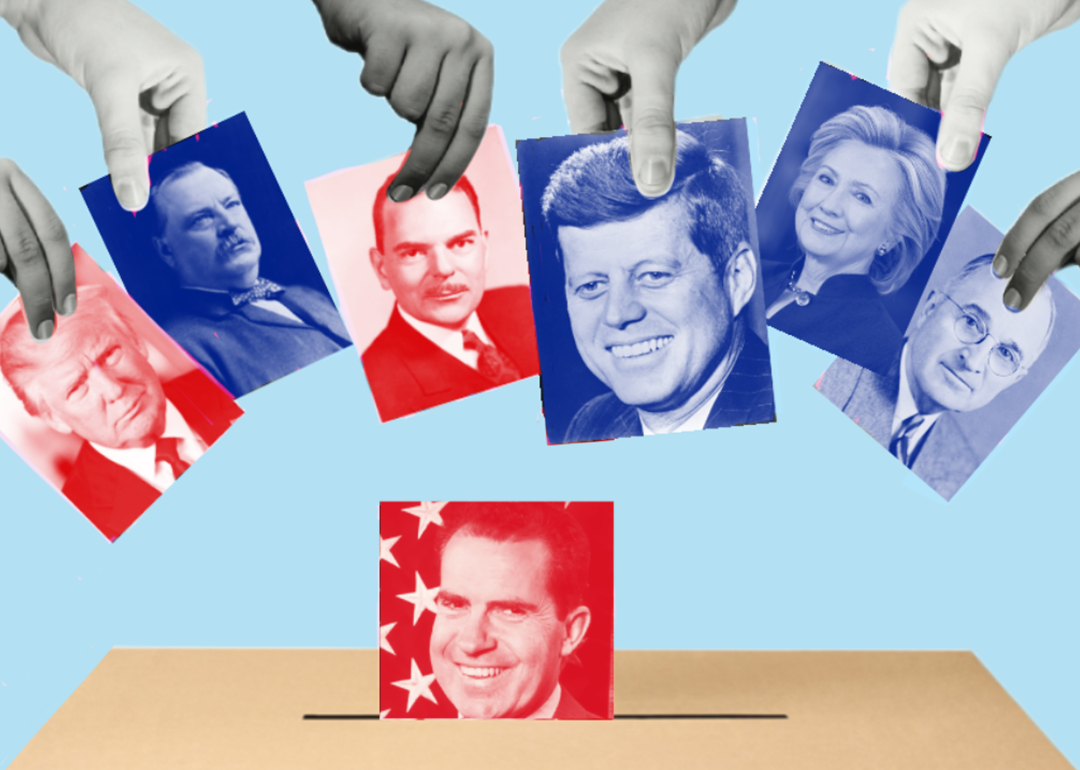5 biggest US presidential election upsets since 1872
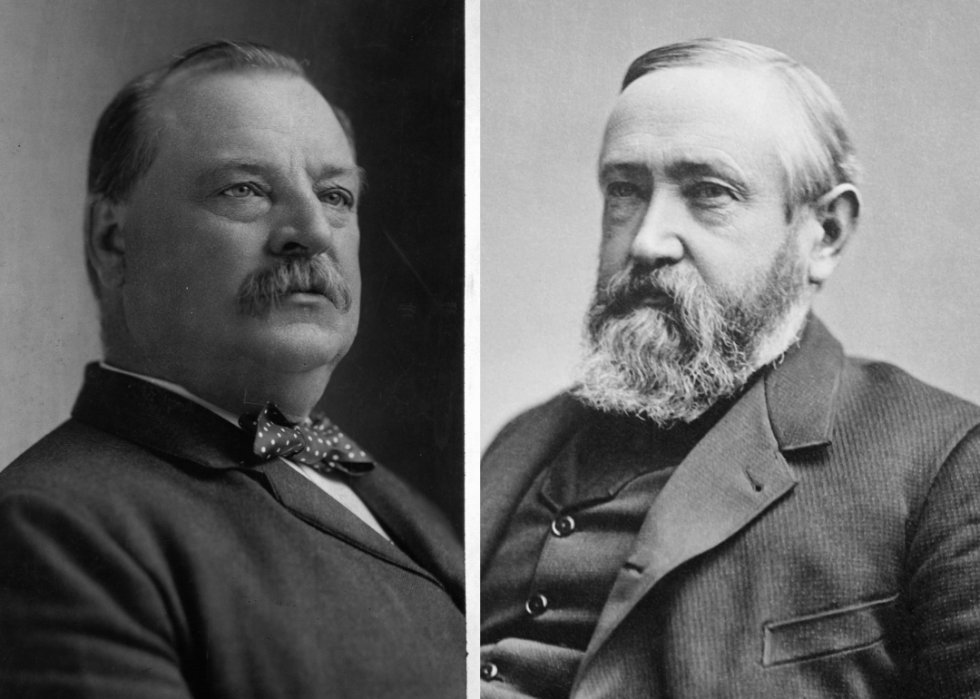
- Preelection odds: -125
- Electoral College results: 277-145
- Popular vote results: 46%-43%
In 1892, Grover Cleveland, the former president who served from March 1885 to March 1889, staged a remarkable comeback to defeat incumbent Benjamin Harrison. The campaign was marked by fiery debates over tariffs and economic policies, particularly the concept of sound currency. Cleveland hammered Harrison's protectionist stance, which many blamed for rising costs of living.
The key battleground states, including New York and Indiana, swung decisively in Cleveland's favor, driven by widespread discontent with the Republican administration's handling of the economy. Despite losing the Electoral College in 1888 (while winning the popular vote), Cleveland's win this time around was a clear rejection of Harrison's presidency. As Cleveland became the only president to serve nonconsecutive terms, the victory signaled a shift toward economic reform and foreshadowed the challenges that would define his second term, including labor unrest and financial instability.
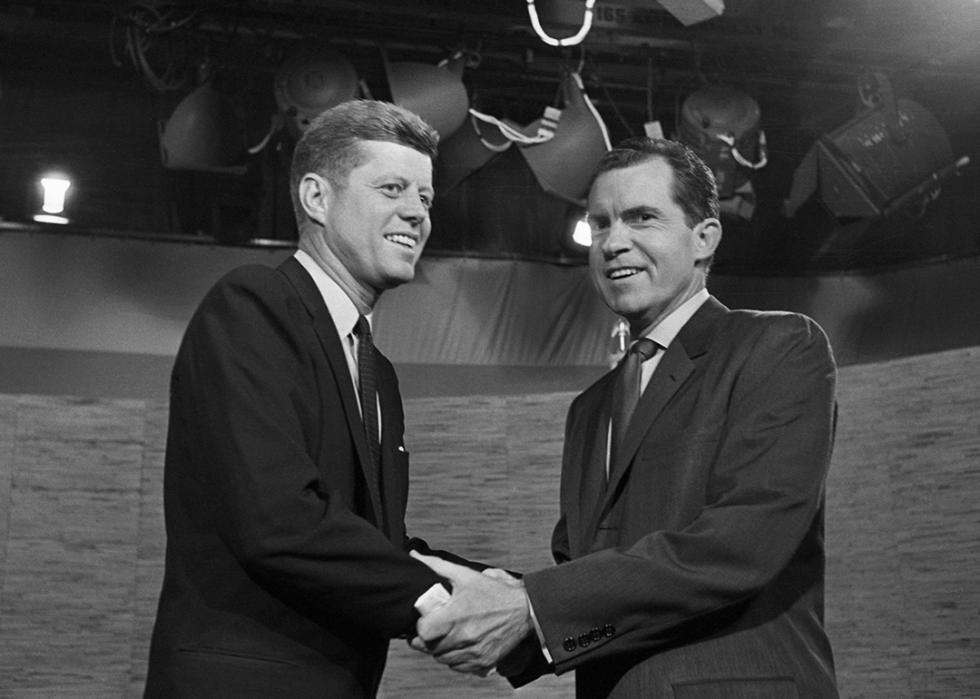
- Preelection odds: -130
- Electoral College results: 303-219
- Popular vote results: 49.7%-49.6%
John F. Kennedy's narrow victory over Richard Nixon in the 1960 presidential election stunned the nation and marked a turning point in American politics. The campaign was fiercely fought, with the first-ever televised debates playing a pivotal role—Kennedy's confident, charismatic performance contrasted sharply with Nixon's tired appearance, swaying many undecided voters.
Key battleground states like Illinois and Texas tipped the scales in Kennedy's favor, with his appeal to younger voters and communities of color proving decisive. As Kennedy took office, his "new frontier" message resonated with a public eager for change, setting the stage for a presidency focused on optimism and progress.
Kennedy grappled with Cold War tensions, including the Cuban Missile Crisis. Under his administration, anti-poverty initiatives were passed, but many other efforts were blocked by conservative Republicans and Southern Democrats. Kennedy's presidency was cut short by his assassination in 1963, but his legacy highlighted the power of the media in shaping public perception.
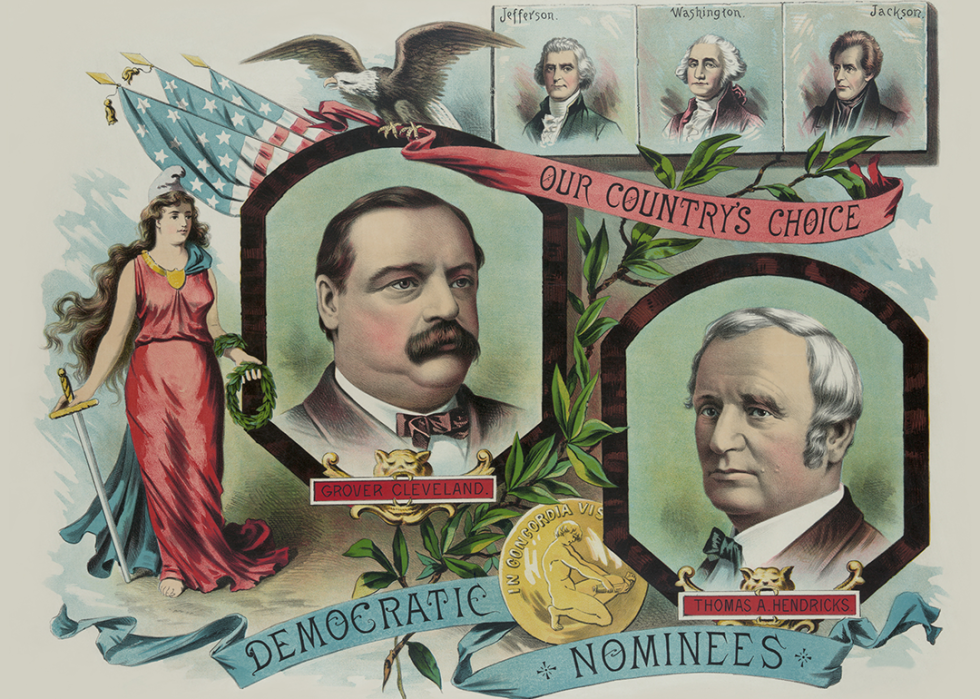
- Preelection odds: -150
- Electoral College results: 219-182
- Popular vote results: 48.9%-48.3%
Grover Cleveland's unexpected victory over James Blaine in the 1884 presidential election came after a fierce mudslinging campaign. Blaine struggled to shake off corruption allegations, while Cleveland's campaign was bogged down by the revelation that he had fathered a child out of wedlock.
Despite the scandals, Cleveland's image as a reform-minded leader resonated with voters fed up with political corruption. He carried the South and won several key states like New York and Missouri. Blaine secured the West and many northern states, but lost New York just one-tenth of a percentage point, losing the 36 electoral votes that would have secured the presidency. Cleveland's victory marked a significant shift as Democrats reclaimed the presidency for the first time since the Civil War, reflecting a public craving for reform and transparency.
Once in office, Cleveland set about reducing political patronage by filling government positions based on merit rather than connections and pushed for reforms in interstate commerce and the Navy. His administration's focus on integrity signaled a broader movement toward cleaner politics and greater accountability.
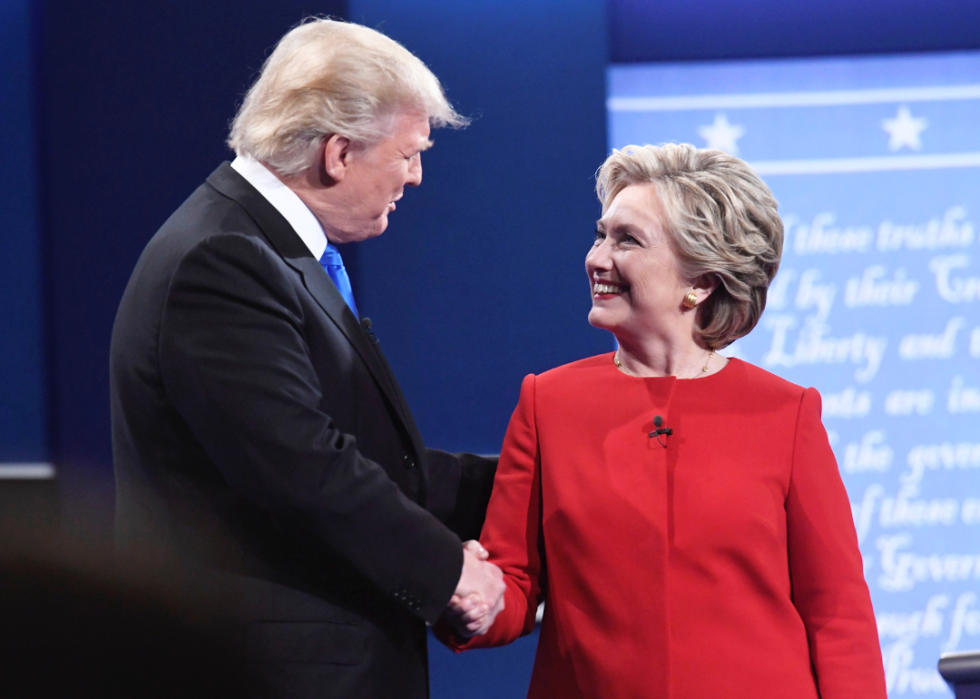
- Preelection odds: -550
- Electoral College results: 304-227
- Popular vote results: 46.1%-48.2%
Donald Trump's shocking 2016 presidential election victory over Democratic nominee Hillary Clinton upended the country's political orthodoxy. The campaign itself was fraught with controversy and surprises, from taped revelations of Trump's sexual misconduct to allegations of Russian interference, the FBI's late-stage announcement that it was investigating Clinton's handling of government emails, and Trump's expectation-beating debate performance.
Trump won crucial battleground states like Pennsylvania, Michigan, and Wisconsin, narrowly flipping traditional Democratic strongholds by appealing to disaffected voters in rural and industrial areas who felt left behind by the downsides of economic globalization. As Trump assumed office, his election signaled a hard-right populist turn that would challenge conventional politics, intensify partisan divides, and foreshadow future turbulence.
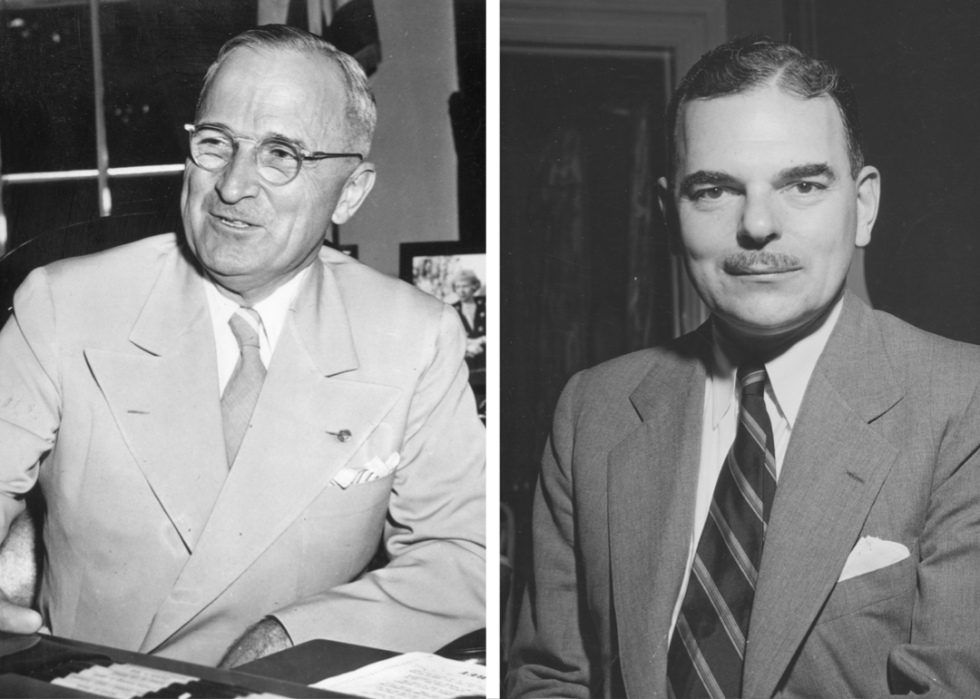
- Preelection odds: -1,800
- Electoral College results: 303-189
- Popular vote results: 49.6%-45.1%
Severely down in the polls and facing a nation in the grips of postwar inflation and beset by labor strikes, Democratic nominee Harry S. Truman embarked on a relentless whistle-stop tour, crisscrossing the country by rail and connecting directly with voters, particularly in key states like Ohio and Illinois. His fierce speeches, hitting Republicans hard over their support for the anti-labor Taft-Hartley Act, revved up crowds and stood in stark contrast to Thomas Dewey's intentionally tempered and inoffensive oratory.
The campaign paid off, and Truman's surprise victory wasn't just a rejection of Republican overconfidence. It was also an endorsement of the New Deal policies of Franklin D. Roosevelt, whom Truman served with as vice president, signaling the public's desire for continuity and reform. As he stepped into office, Truman's victory highlighted a growing divide between political elites and the average voter, a rift that would shape the next phase of American politics.
Data reporting by Karim Noorani. Story editing by Alizah Salario. Additional editing by Kelly Glass. Copy editing by Tim Bruns.
